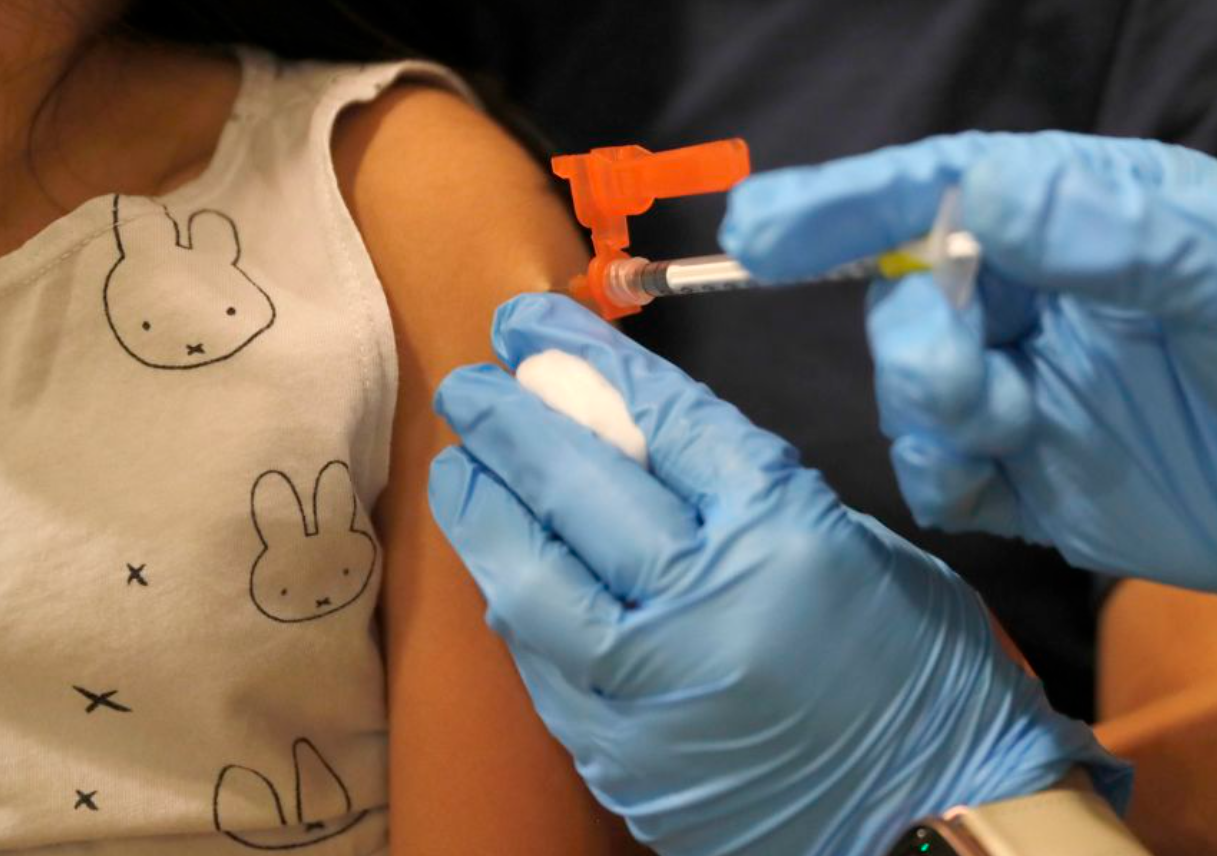💉 FDA May Not Renew Pfizer’s Pediatric Covid-19 Vaccine Authorization
Parents in the United States who want to vaccinate their young children against Covid-19 may face significant obstacles this upcoming respiratory virus season. According to the US Centers for Disease Control and Prevention (CDC), the US Food and Drug Administration (FDA) might not renew authorization for Pfizer’s pediatric Covid-19 vaccine for children aged 6 months to 4 years for the 2025–2026 season.
If this decision moves forward, young children would lose access to Pfizer’s vaccine entirely, and the only remaining option — Moderna’s Covid-19 vaccine — would need to be given “off label” by a physician or pharmacist for healthy children with no underlying conditions.

📌 Shift in CDC Vaccine Recommendations
Earlier this year, US Health and Human Services Secretary Robert F. Kennedy Jr. announced that the CDC would no longer recommend Covid-19 vaccines for healthy children or pregnant women. Instead, vaccination for these groups would follow a “shared decision-making” model, where families consult their healthcare providers.
However, without FDA authorization, the Pfizer pediatric Covid-19 vaccine would be unavailable for all children under 5, disrupting the shared decision-making process entirely.
💡 Why This Matters
Data from the CDC shows that last respiratory virus season, there were 48 Covid-19 hospitalizations for every 100,000 children under 5 in the US — nearly seven times the rate for older children and more than double the rate for adults under 50.
- Young children are among the most vulnerable to severe Covid-19 illness.
- Covid-19 hospitalization rates for infants are comparable to those over 65.
- Reduced access to vaccines could increase severe cases and hospitalizations.
🗣 Expert Concerns
Dr. Paul Offit, pediatrician and director of the Vaccine Education Center at Children’s Hospital of Philadelphia, warns that the situation creates confusion. “Shared clinical decision-making assumes you’re making a decision for that child regardless of health status,” he said. “Now, without authorization, that choice disappears.”
Advocacy groups like Protect Their Future argue that removing access to a safe, effective vaccine abandons vulnerable children. “Infants face hospitalization rates comparable to those over 65,” co-founder Fatima Khan said. “Refusing authorization doesn’t protect them — it abandons them.”
🏥 Moderna’s Role and Supply Concerns
Moderna’s Covid-19 vaccine for children aged 11 and under received full FDA approval in July, but only for those at increased risk. Moderna has stated it will work to expand supply to mitigate any potential gap, but the exact timing and volume remain uncertain.
Both Pfizer and Moderna typically update their vaccines each season to match circulating strains, similar to flu vaccines. However, the FDA has yet to approve the formulation for the 2025–2026 season.
📊 Rising Covid-19 Trends
Covid-19 transmission is currently increasing in at least 45 US states, according to the CDC. Public health experts fear reduced vaccine availability will lead to more hospitalizations among young children, especially as schools reopen this fall.
CDC Check
🔍 Conclusion
The potential loss of FDA authorization for the Pfizer pediatric Covid-19 vaccine could significantly limit protection for the youngest and most vulnerable children in the US. With hospitalization rates for children under 5 remaining high, experts stress the urgency of maintaining access to multiple vaccine options. As decisions unfold, families, healthcare providers, and policymakers will need to work together to ensure no child is left without protection.

